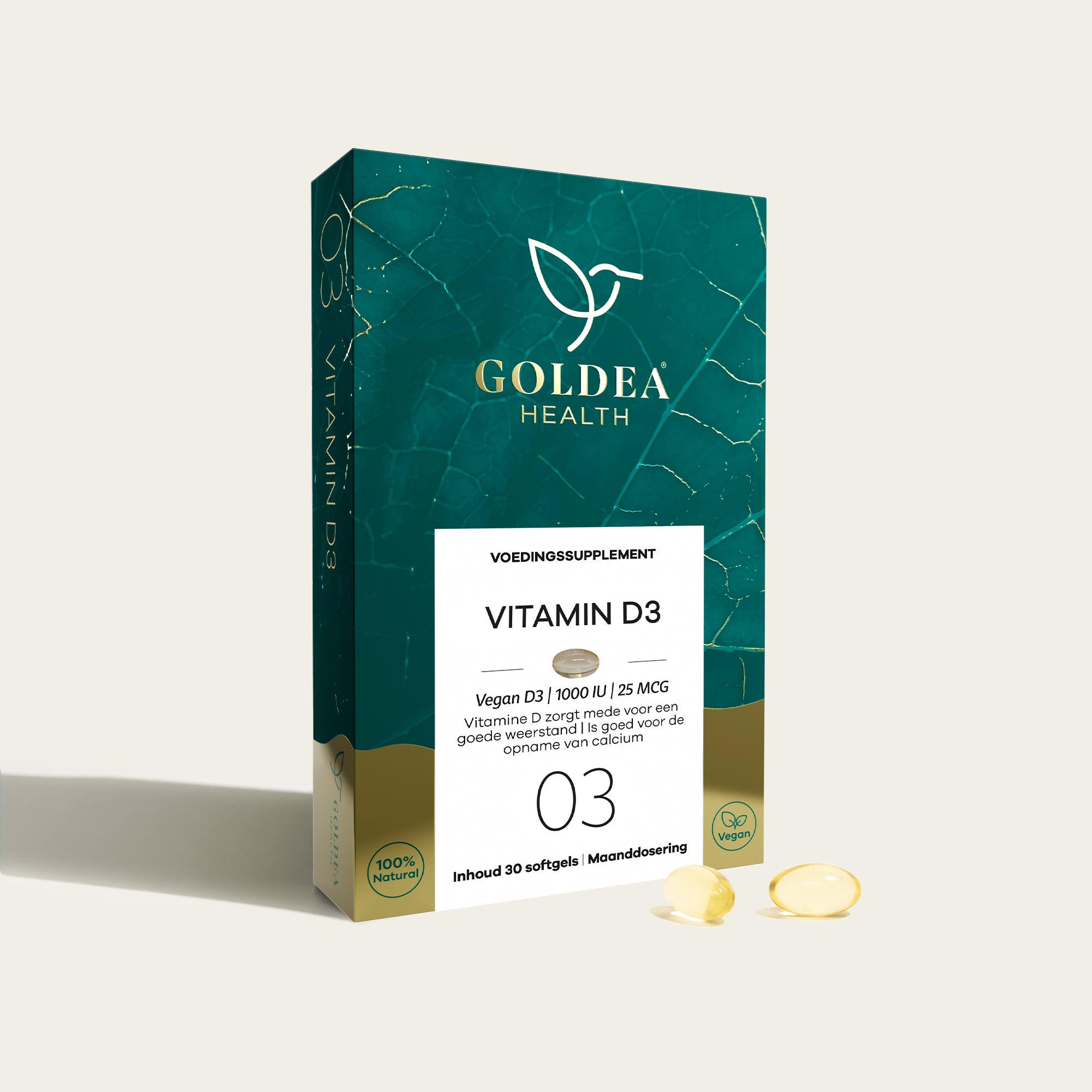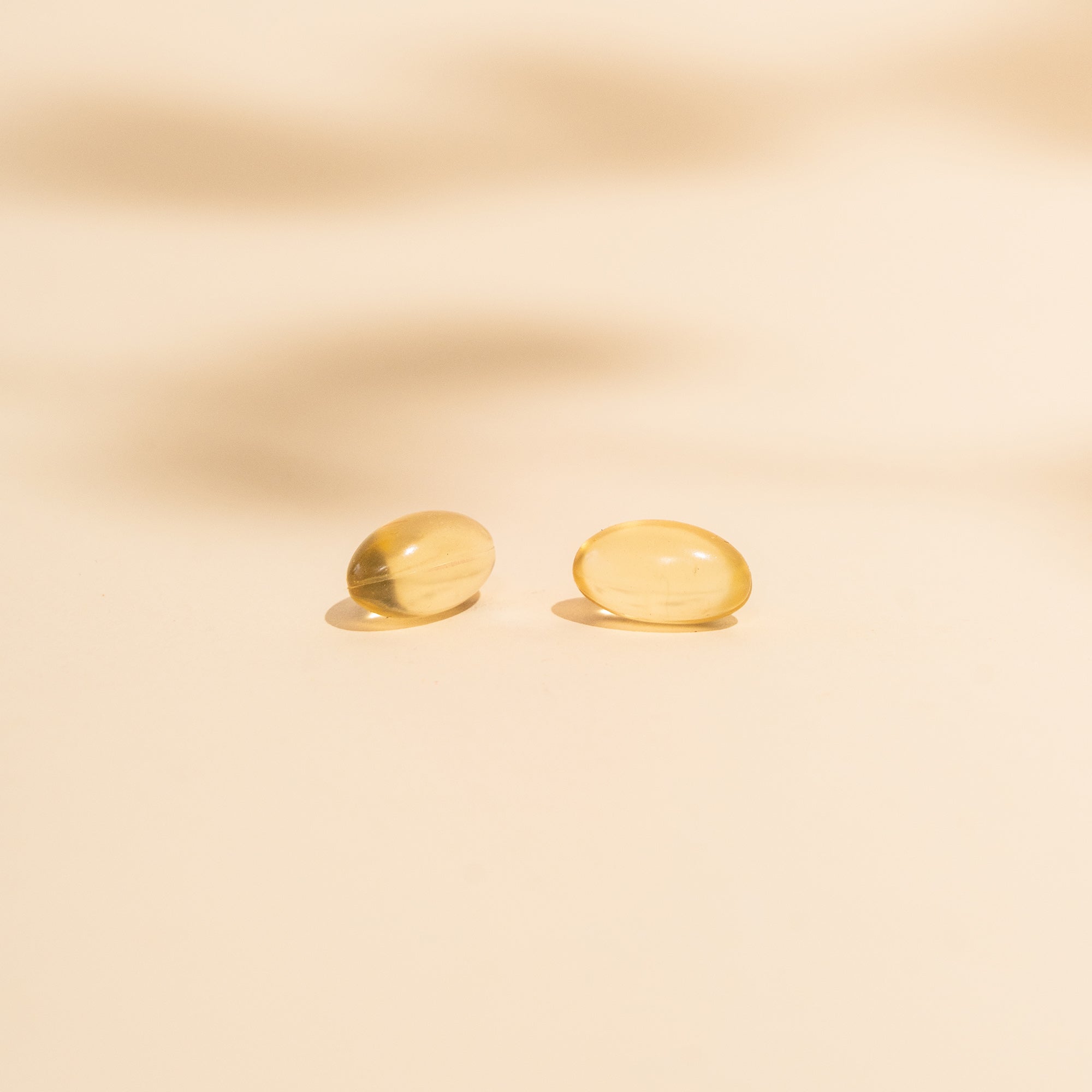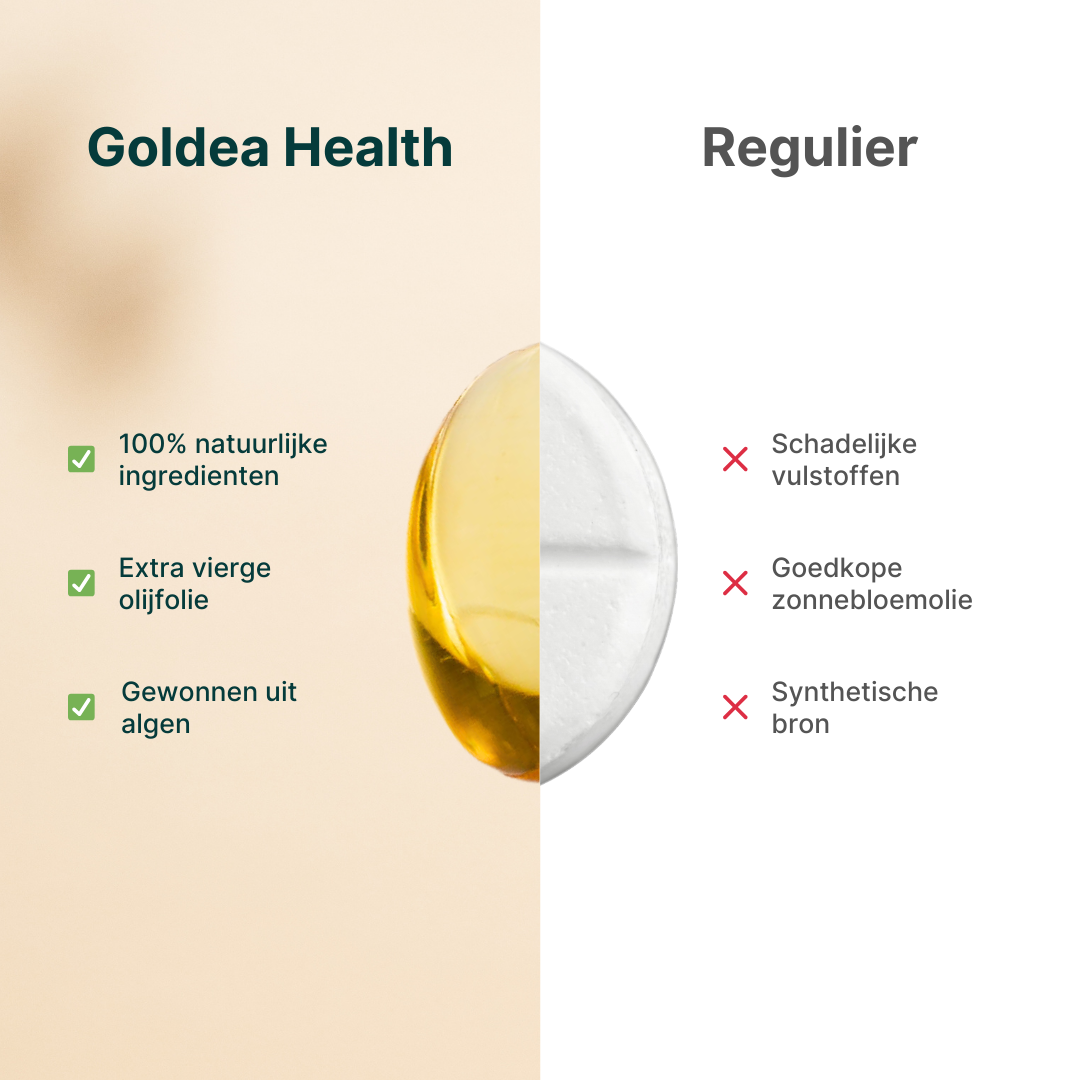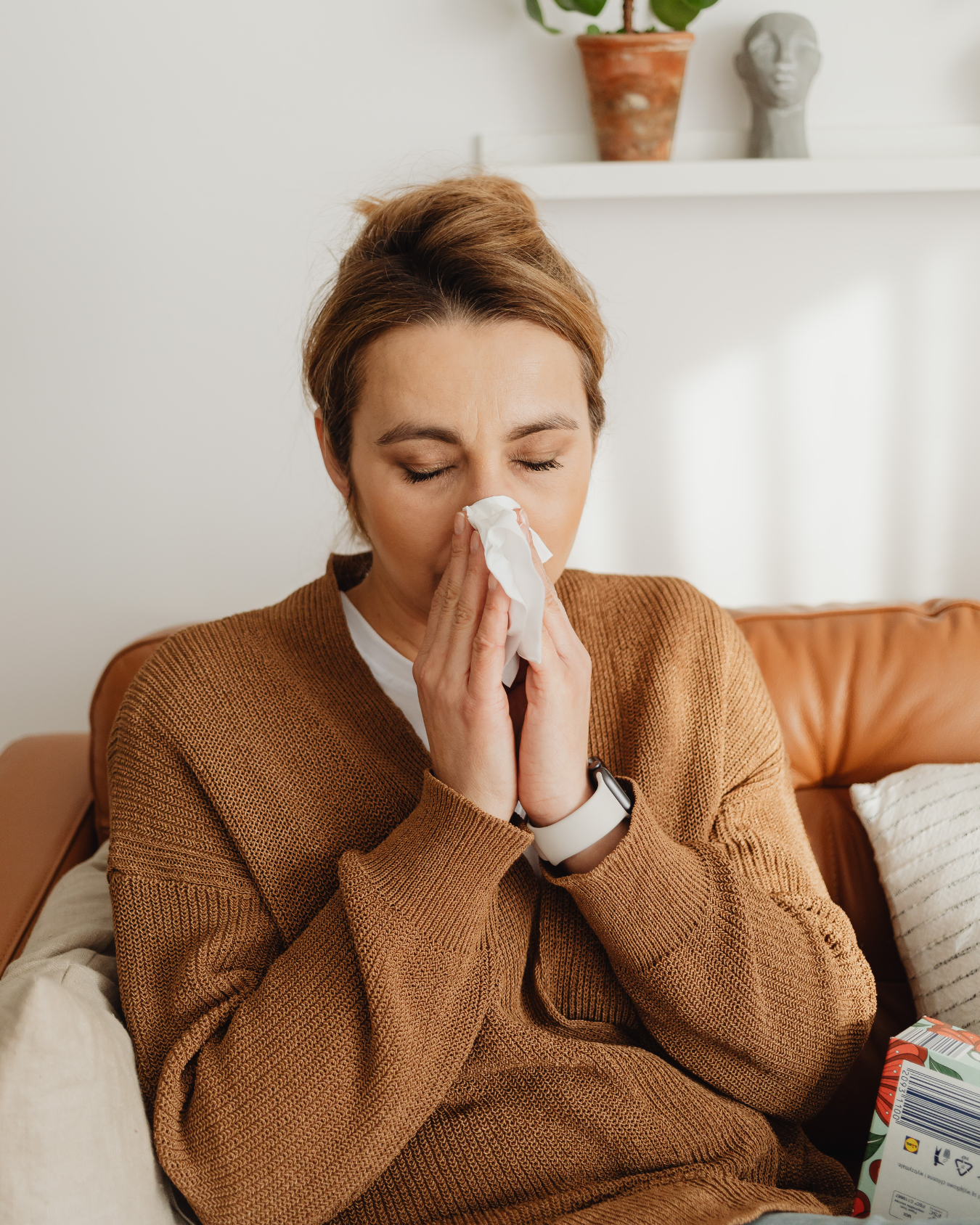Reading time: 2 minutes
At Goldea Health, we're truly fascinated by the sun's miraculous effects on our health. One of the most enchanting vitamins is undoubtedly vitamin D. It plays a vital role in our bodies and can't be ignored! Join us on this inspiring journey into the world of vitamin D deficiency and discover how you can bring your body back into balance.
What is vitamin D needed for?
Let's start with a little vitamin D knowledge! Vitamin D (also known as a hormone) is like a building block for a strong and healthy body. It supports calcium absorption, keeping our bones strong and our teeth radiantly white. But that's not all! This vitamin has a positive effect on the immune system and plays a key role in maintaining supple muscles. A true all-rounder!
How do you recognize a vitamin D deficiency?
Did you know that in winter 60% of Dutch people have a vitamin D deficiency? ( See source: here ) .
Believe it or not, a vitamin D deficiency can manifest itself insidiously. But we'll help you recognize the signs.
Do you often feel tired and exhausted? Do you experience muscle pain and weakness for no apparent reason? You might also notice your mood swings and fluctuations like a roller coaster ride. These are some of the possible signs that your body is crying out for some extra vitamin D love!
What is low vitamin D?
Let's take a moment to consider what low vitamin D actually means. It's important to understand the recommended levels and how we can strive for optimal health. Knowledge is power, so join us as we delve into the signs and symptoms!
10 Signs and Symptoms of a Vitamin D Deficiency
1. Fatigue: Do you often feel exhausted and listless? A deficiency can significantly lower your energy levels.
2. Sadness and mood swings: Do you often find your mood swinging? It plays a role in the production of serotonin, the "happiness hormone," so a deficiency can affect your mood.
3. Muscle pain and weakness: If your muscles complain and protest after light exertion, this could be a sign of a deficiency.
4. Diseases and infections: A well-functioning immune system is essential for staying healthy. It plays a key role in this, and a deficiency can make you more susceptible to infections.
5. Low back pain: A deficiency is associated with chronic low back pain.
6. Sore bones and joints: Sore bones and joints can indicate a deficiency of this vitamin, which in turn affects calcium absorption and bone health.
7. Poor sleep: A good night's sleep is essential for our well-being, and it can play a role in regulating our sleep-wake rhythm.
8. Hair Loss: Are you losing more hair than normal? A deficiency in this vitamin can affect the health of your hair follicles.
9. Weight gain: When you gain weight for no apparent reason.
10. Concentration problems: The ability to concentrate and focus may decrease.
Natural production :
Did you know we have our own vitamin D factories? All we have to do is let the gentle rays of the sun warm our faces!
Daily sun exposure can help maintain our vitamin D levels. But of course, as with everything in life, balance is key. We don't need sunscreen to protect ourselves from these healing rays; it actually blocks our vitamin D production!
Causes of Vitamin D Deficiency
Unfortunately, there are factors that can inhibit or even block our vitamin D production. Work and family life can often take over, leading us to spend less time outdoors. Sunscreen also blocks vitamin D production.
But we have a secret weapon! By making smart choices and being mindful of our sunlight exposure, we can support our bodies in producing this precious vitamin.
5 sun tips:
- It's best to go out into the sun first thing in the morning. This light is good for your circadian rhythm and you won't get burned yet.
- Start slowly and let your body adjust to the sun. You can do this as soon as the spring sun appears.
- Know your skin: adjust the time and sun exposure to your skin type, color phase, and UV index.
- If you're going on vacation and want to soak up the sun, use a natural sunscreen. We recommend Dr. Hauschka sunscreen .
- Finally, eat as cleanly as possible. Focus on foods that protect from the inside out: see this blog for tips.
People with an increased need for vitamin D
There are specific groups of people who are particularly susceptible to vitamin D deficiency. So if you belong to one of these groups, listen up!
- Pregnant women.
- People with naturally tinted skin.
- People who are not outside between 11am and 3pm every day.
- Children up to and including 3 years old.
- Women with light skin over 50 years of age.
- Men with light skin aged 70 and over.
- People who do not supplement with vitamin D during the winter months.
For all of you: a good and pure supplement can make a world of difference!
Vitamin D as a supplement
We hear you thinking, "Which supplements are right for me?" Here's the answer!
It's best to create a personalized vitamin D supplementation plan. Our orthomolecular therapist can help you with this, as we offer free, personalized advice . This ensures you get the right dosage and form of vitamin D for your needs.
Want to order a supplement now? You can!






















